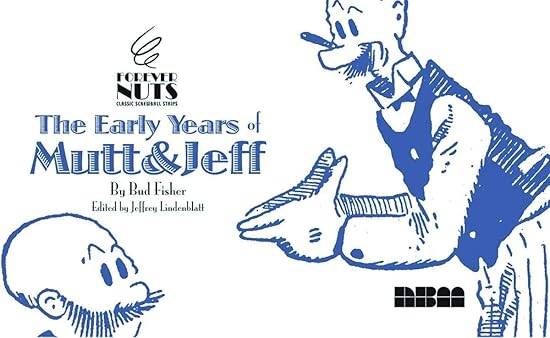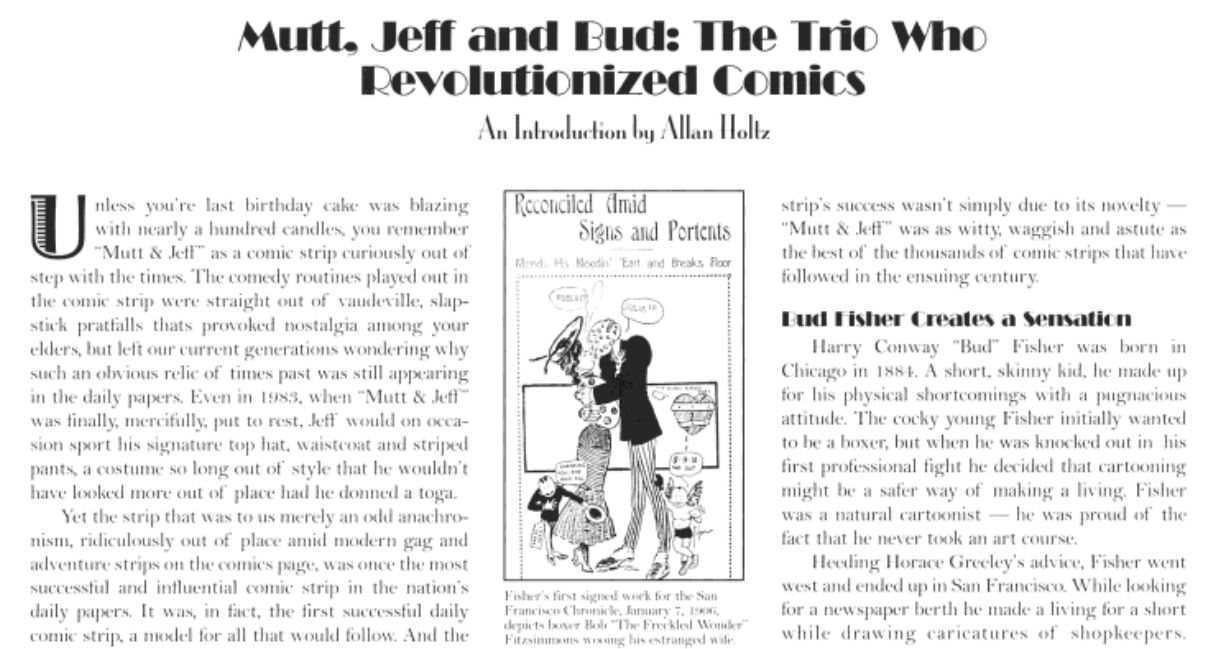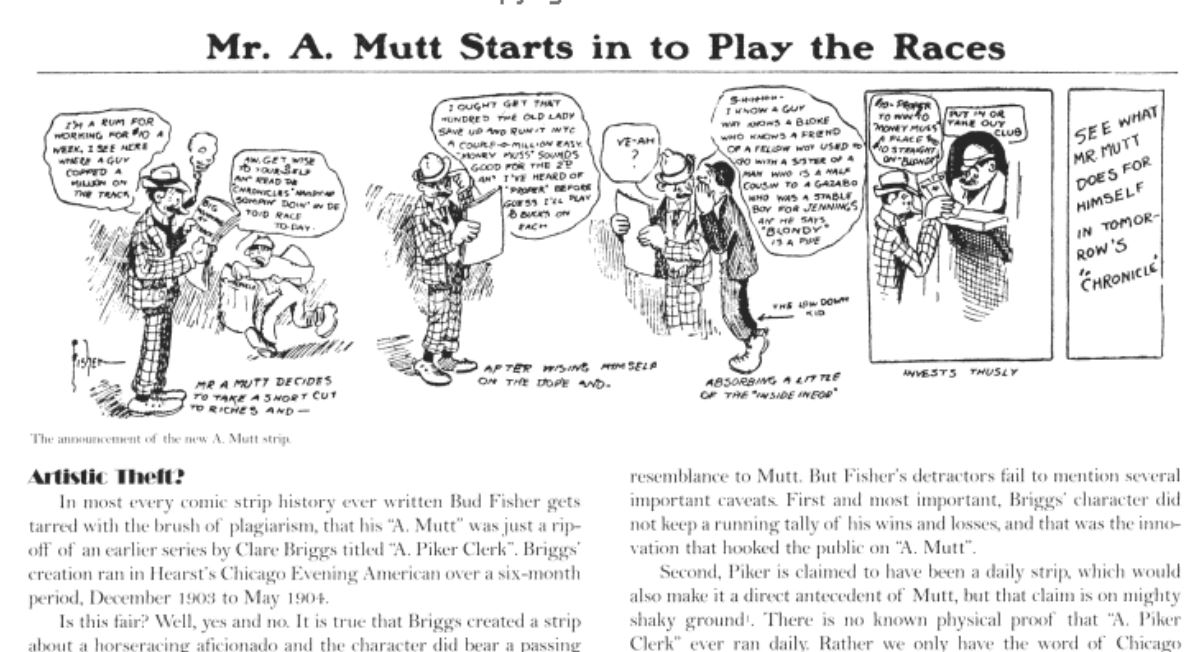
By Bud Fisher, edited by Jeffrey Lindenblatt (NBM)
ISBN 13: 978-1-56163-502-3 (HB)
This book includes Discriminatory Content produced in less enlightened times.
Today in 1954, Bud Fisher died. His landmark strip shaped the way cartoon humour worked for decades. Eerily, on the same day in 1955, Joe Palooka creator Ham Fisher (no relation), also died. There are even fewer collections of his work in print but one day we’ll get to what there is…
Here’s another wonderful historical treat that’s tragically lost to public gaze, once a welcome addition to a growing pool of classic strips that seemed to finally gain fan traction and be collected into accessible forms for posterity and enjoyment. Bud Fisher’s Mutt & Jeff is arguably the first comic strip to employ day to day carried-over continuity rather than individual escapades on a per diem basis.
Harry Conway “Bud” Fisher began the strip A. Mutt in 1907 as a topical topper added to the racing pages of the San Francisco Chronicle. The gimmick was to have his cartoon wastrel bet on the runners and riders of that day’s paper, with the results – good or bad – forming the bones of the next day’s strip.

When Fisher’s wittily funny side hustle took off – first at the more cosmopolitan San Francisco Examiner and then into national syndication – such a limited, local maguffin was impossible for a strip now seen all across the continent. Thus a vaudeville style comedy partner and more general topics were added to become the norm. The premise of two ordinary, average – if dumb – Joes remained the strip’s basis until it ultimately folded in 1983.
Although of undoubted historical value, the slapstick roots of these everyman characters meant that gags were its currency, and the sensibilities employed – and appealed to – were often harsh, sexist, and very often quite racist by today’s standards.
Or were they?
Undoubtedly the physical depiction of Negro, Mexican, British, French, Turkish and so many other non-W.A.S.P. Americans never deviated from the graphically stereotypical. Certainly young women were always sexy and older women were grim battle axes, whilst rich people were always fat. But I suspect that that more comedic social shorthand as wilful malice aforethought.
Certainly for every gag that portrayed stupid, slow or cowardly black people there was another when the stereotype outwitted the protagonist. For every dim blonde or dumb Hausfrau there was a female sharpie who made the boys into the goats. Could it be Fisher was just a child of his time, knew his audience and was just going for the laugh wherever it was with no thought of political or social relevance?
Perhaps Fisher or his innumerable and often anonymous ‘ghosts’ (among whom Ed Mack and latterly Al Smith were most prominent) weren’t as evolved as us?
Fisher was a notoriously “absentee” creator who regularly missed deadlines and had a string of substitutes to produce the strip for him once he became comics’ first millionaire. Occasionally he would even suspend the strip entirely. Yet the feature was never discarded by client newspapers who felt it mirrored their readerships. It was just that popular.
This volume assembles strips from 1909-1913 and is certainly not without flaws. Often the heroes are pretty unlikable when they aren’t being winningly daft or actually funny. There are moments of pure racism and sexism, but also uncharacteristic challenges to that woeful status quo of acceptable stereotypes.

One minor technical moan: there’s some unfortunate editing and some strips are repeated, and it’s not that some gags are so old you can’t tell them apart…
I know that last charge isn’t true. Despite the implications of the somewhat apologist introduction from historian Allen Holtz, Mutt & Jeff was a huge multimedia hit for nearly 80 years and they are still household names today. Moreover, read in context and on their own terms, they are still brilliantly hilarious slapstick gag strips. If you’re prepared to read with an open mind you might be pleasantly surprised.
No © invoked. Any helpful suggestions?
